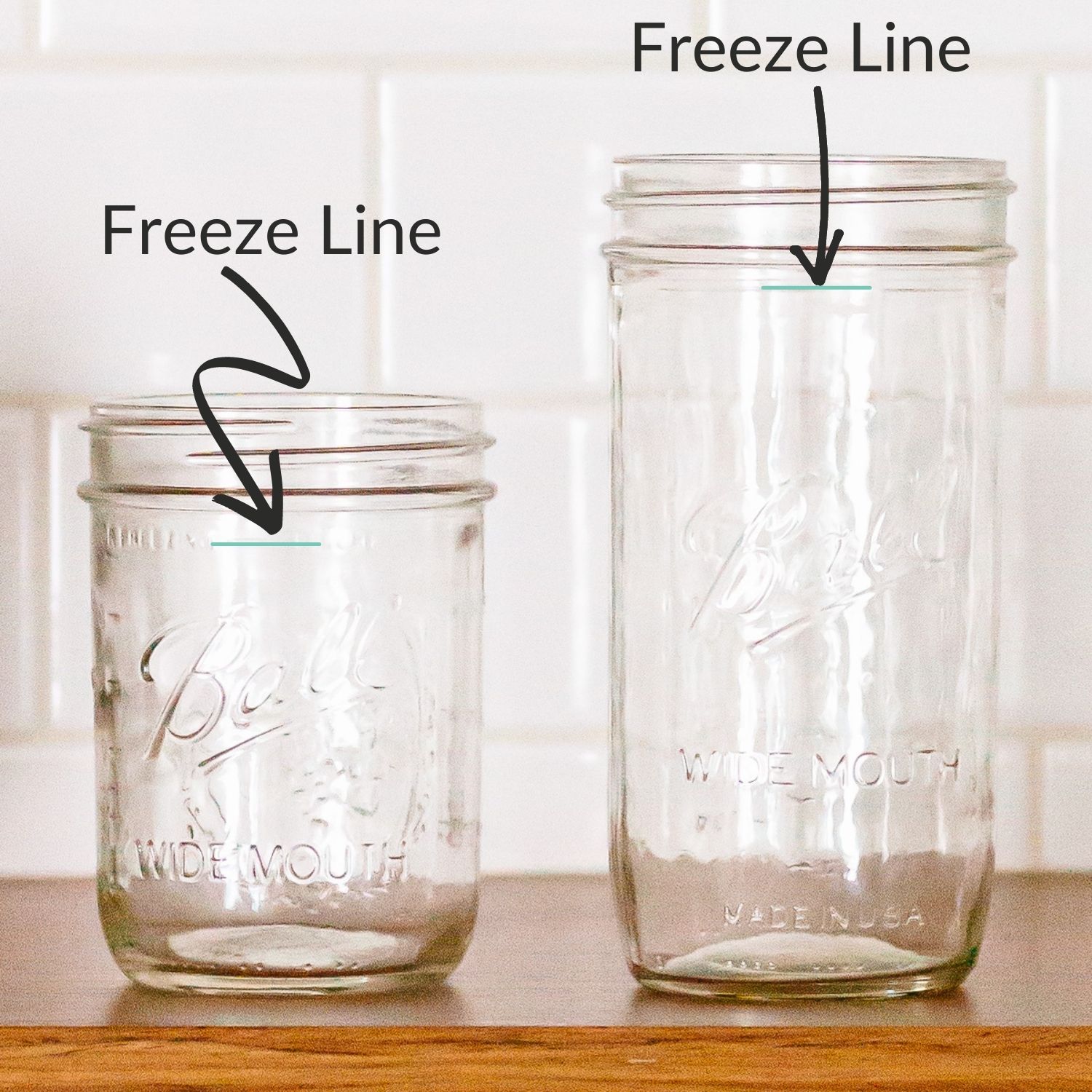
Can You Freeze Mason Jars + Tips To Prevent Breakage Maple + Mango
If you prefer, you can stick with glass jars that are designated freezer-safe. These tend to be the brands also suitable for canning - they are designed to withstand extremes of temperature. Ball Mason, Fowlers Vacola, Weck, Le Parfait jars are all examples. How to freeze in glass jars, step by step
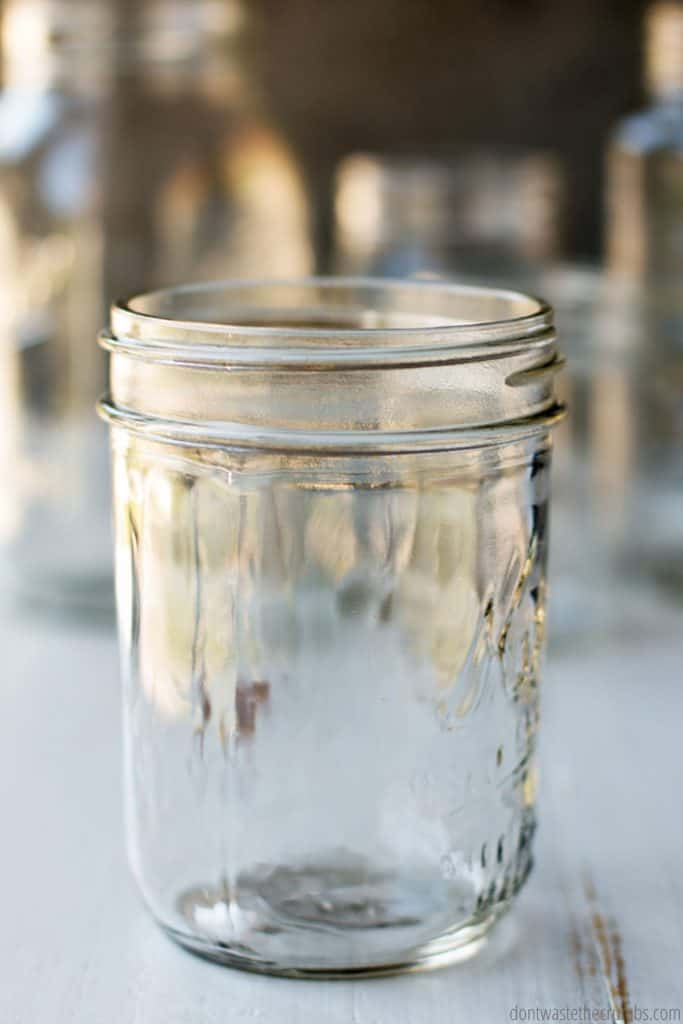
Easy Homemade Tip Can You Freeze Glass Mason Jars?
Two Tricks to Know. LEAVE ROOM FOR EXPANSION You can't fill the jars to the top, it's important to leave room for the stock to expand as it freezes. In my experience, that means filling the canning jars just to their "shoulders", where the jars start to curve in to form the mouth. LOOSE LIDS I also leave the lids slightly loose, well, not loose.
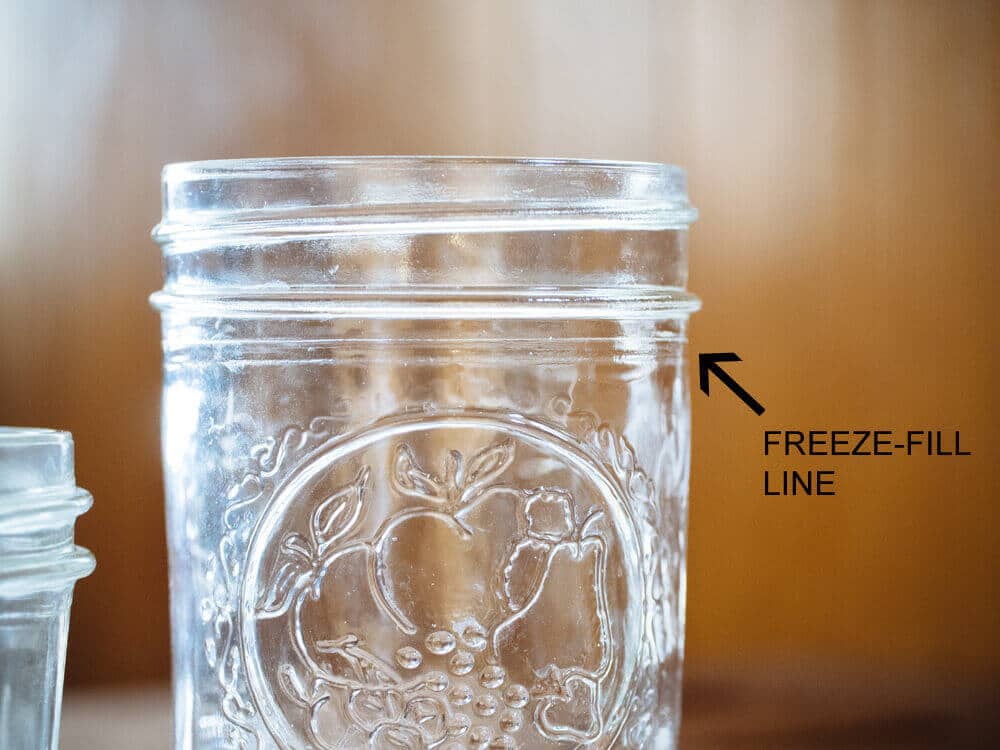
How to Safely Freeze Liquids in Mason Jars Garden Betty
You have to freeze in jars with straight sides-jars without "shoulders" in other words. If by regular mouth you mean small mouth jars, the kind with shoulders, then I'm sorry to say that those jars will be prone to crack in the freezer. Terresa Rowe. June 23, 2015 10:54 am. I have made a large batch of Gazpacho.

How to successfully freeze in glass jars and containers no more
Let stand 5 minutes. Spoon into jars, leaving ½ inch headspace. Center lid on jars. Apply bands and adjust loosely. Once jam is frozen, adjust bands to fingertip-tight. Store in freezer up to 1 year. Thaw in refrigerator. Refrigerate after thawing, and use within 3 weeks. Download a printable step-by-step freezing guide here .
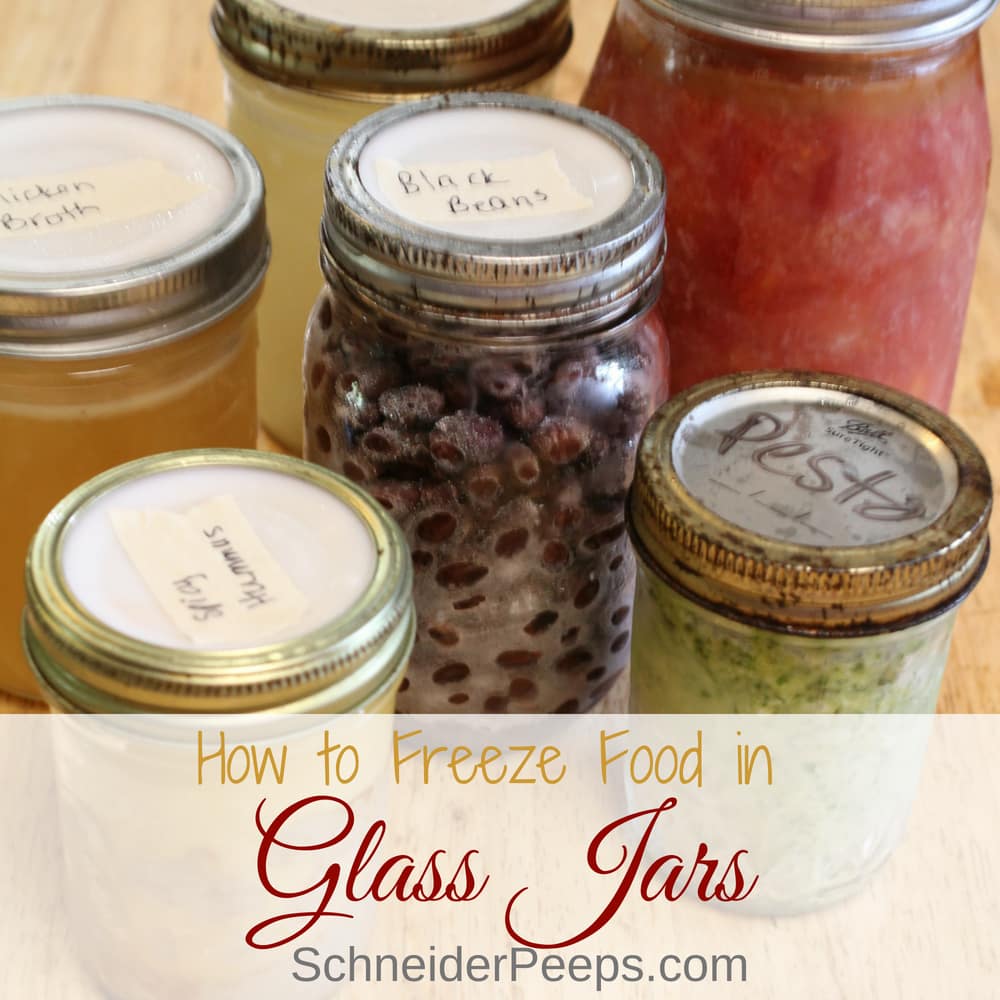
How to successfully freeze in glass jars and containers no more
Keep the lid loose, at first: Wait to tighten the lids until the contents in the jar have fully frozen. You'll want to keep your jars upright while your food is freezing. Let hot liquids cool: Let your cooked foods cool to room temperature before pouring them into Mason jars. Then, let your filled Mason jars completely cool in the.
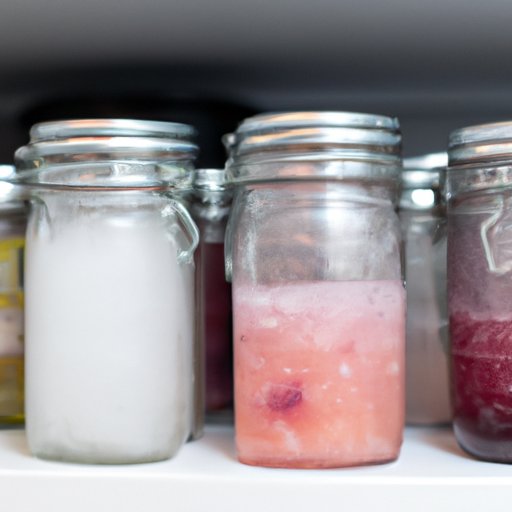
Can You Freeze Glass Jars? The Ultimate Guide to Freezing Food in Glass
Put lids on jars and place in freezer overnight. You can use the metal lid and band that come with your canning jars, or you can use plastic lids. I also save the tops from our peanut butter jars because they fit our glass mason jars, too! Use a clean dish towel or paper towel to wipe the rim and top of the jar before placing a lid on your soup.
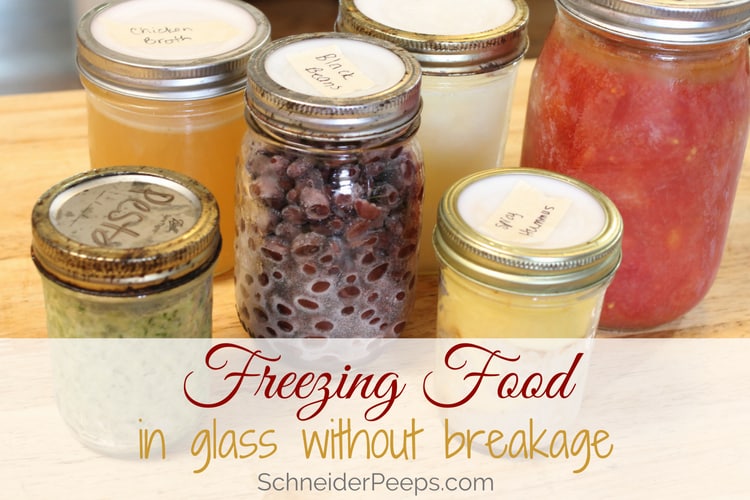
How to successfully freeze in glass jars and containers no more
Canning jars are my favorite to freeze in because they're simple, inexpensive, and multi-purpose - you can freeze, store, and can in them. If you're freezing baby food in jars, there is no need to get fancy (expensive) "baby food freezer jars", 8 oz or 4 oz caning jar will do just fine.
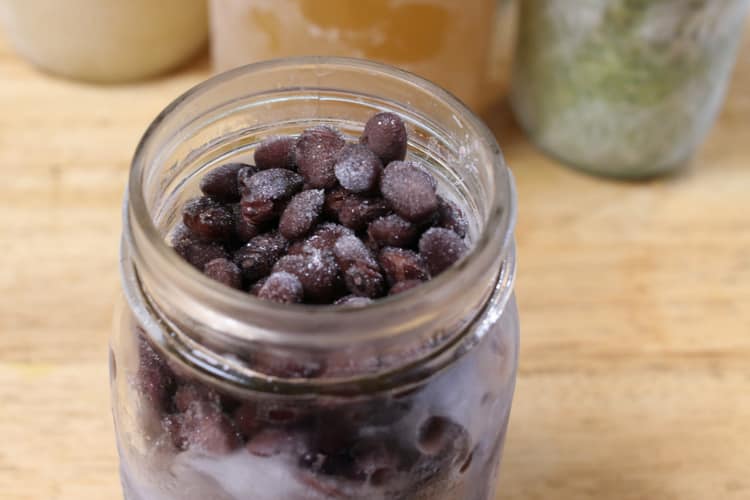
How to successfully freeze in glass jars and containers no more
However, you may be wondering if you can freeze in canning jars. The answer is yes! Freezing in canning jars is a great way to preserve your food. Here are some tips for freezing in canning jars: -Choose the right size jar.. They are made of glass and come in various sizes. Mason jars are popular for canning and preserving food, but they can.

How to Freeze in Glass Jars Little Sustainable Steps
Related: 9 Updated Canning Tips and Tricks for Modern-Day Home Canning. If you're trying to avoid excessive use of plastic in the home, glass mason jars are a great reusable option that you likely already have around. You can freeze liquids in mason jars and store them for several months in the freezer. But!

Freezing in Glass {No More Broken Jars!} A Better Way to Thrive
The first is if the jar is too hot when it is placed into the freezer. When the hot glass is exposed to the sudden drop in temperature it causes it to cool too quickly. This rapid cooling results in internal stresses cracking the glass. The second thing that causes mason jars to burst in the freezer is over filling.
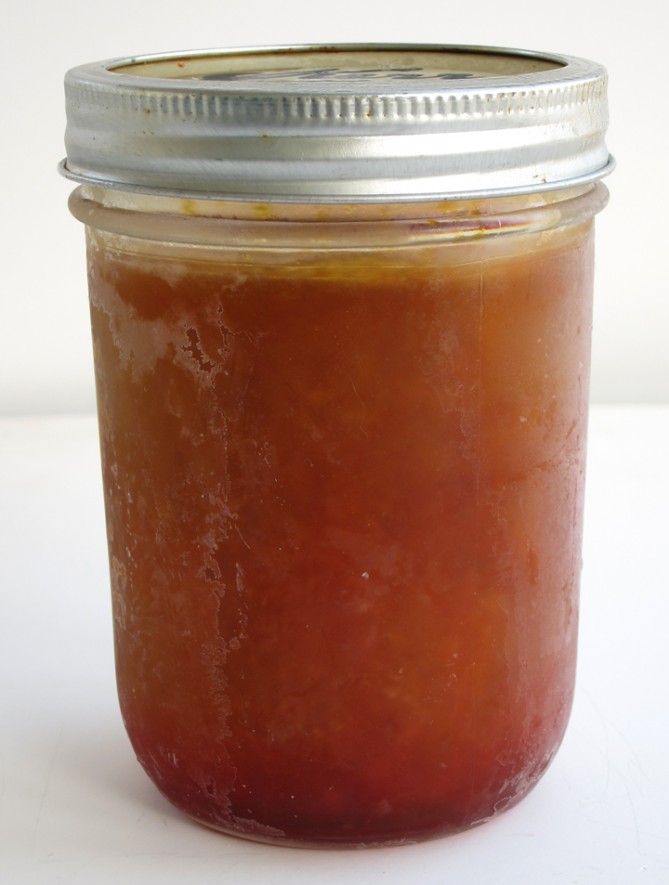
How to Freeze Food in Canning Jars Root Simple
If you've got a lot of canning jars lying around in the house, you might be wondering whether you can use those for freezing. Yes, you can! Canning jars are made from tempered glass. So they'll work just fine for your needs. The only consideration to keep in mind is that the quality of glass deteriorates as it ages. This makes old glass.
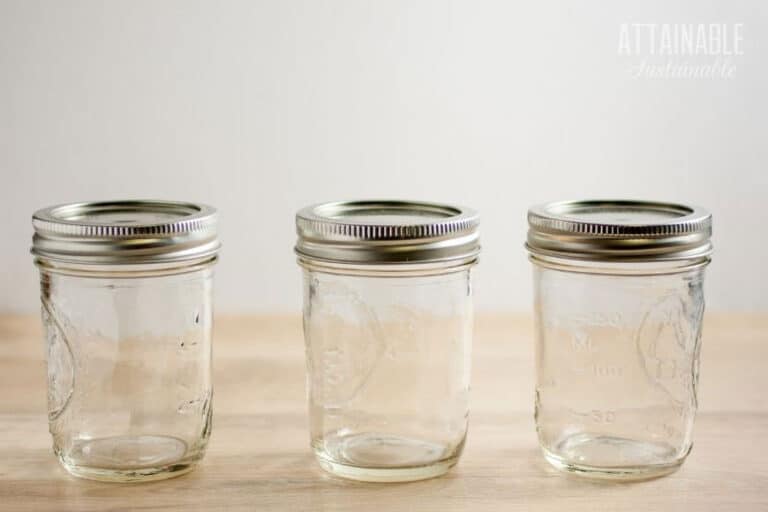
5 Food Storage Tips for Freezing Mason Jars Attainable Sustainable®
5 Simple Tips for Freezing in Glass. 1. Play It Cool. Make sure to cool your broth, soup, or sauce before ladling it into glass jars, then completely cool the jars in the fridge at least overnight before freezing. (If you can manage to cool them 24 hours first, even better!)
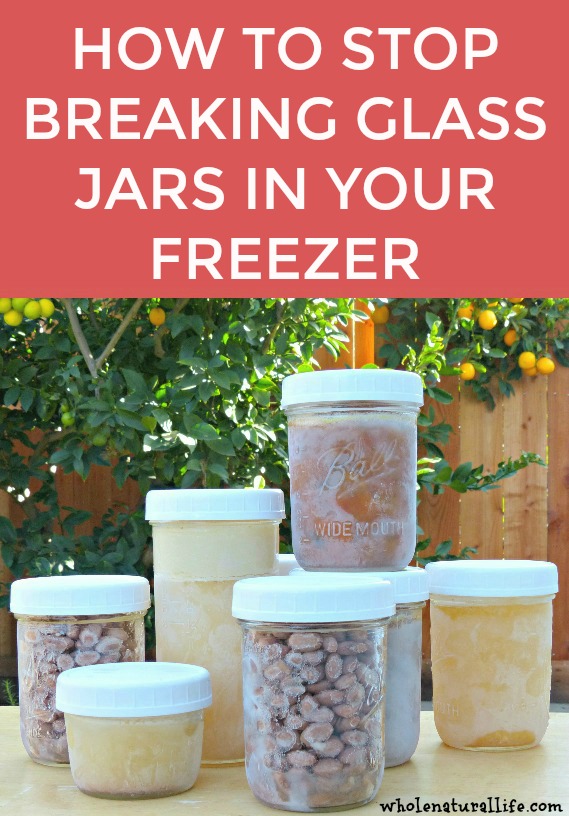
3 Secrets You Need to Know to Stop Breaking Glass Jars in Your Freezer
Yes, you can freeze canning glass jars. In fact, it's one of the best ways to extend the shelf life of your canned goods. When properly done, freezing canned goods can keep them fresh for up to two years. Here are some tips for freezing your canned goods: - Choose jars that are made of tempered glass. Tempered glass is stronger and less.
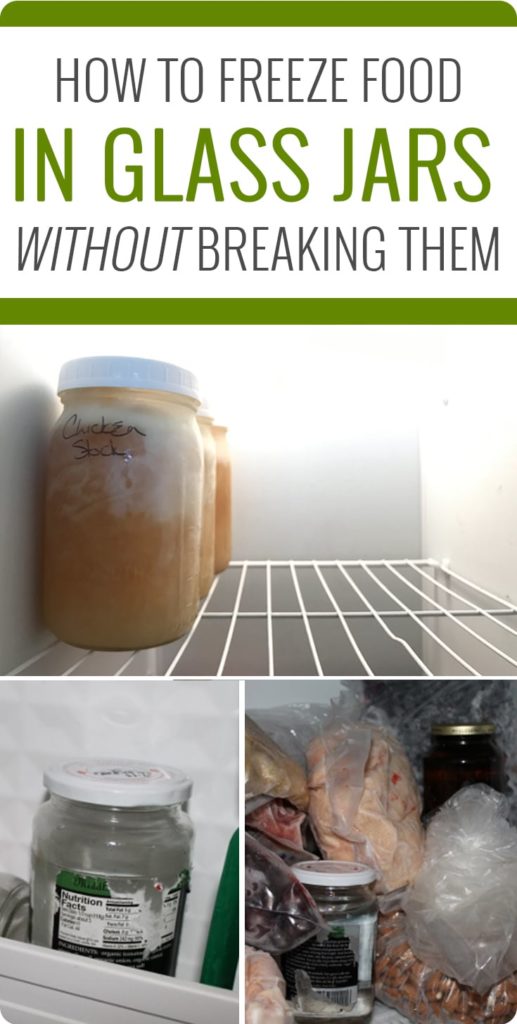
How to Freeze Food in Glass Jars
TIP 1: CHOOSE THE RIGHT SHAPE. At room temperature, all glass jars are created equal. Not so much when you are freezing in glass jars. Glass jars are usually one of two main shapes - straight sides or shoulders. Freeze in jars with straight sides. Glass jars with straight sides are just that - straight from the top all the way to the bottom.

Freezing Glass Jars The Plastic Free and Safe Way to Store Leftover Food
2. Allow the Soup, Stew, or Main Dish to Cool. Avoid adding steaming hot liquid to the mason jar. Instead, allow the soup or stew to cool slightly before adding to the jar. 3. Transfer to the Mason Jar. Fill each mason jar with the soup, stew, or leftovers using a stainless steel ladle and wide mouth funnel.

Learn How to Freeze in Mason Jars Easily with Recipes
Rule 1- Cool hot liquids and food before freezing. Thermal shock can break glass. Thermal just means temperature. Putting a hot product into a room temperature or colder mason jar can break the jar with shock. This is also one reason why you heat your jars before canning. The other reason is to sterilize your jars.